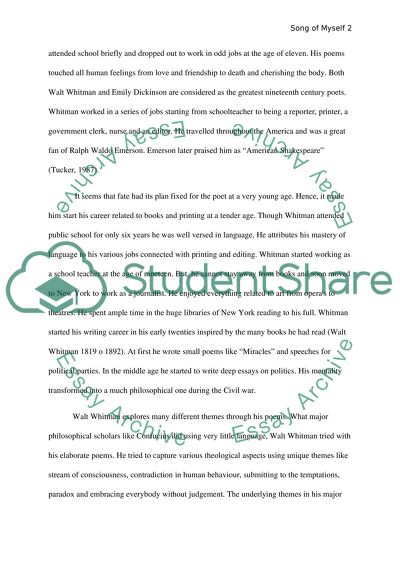Cite this document
(“Analysis of Walt Whitman and his poetry Research Paper”, n.d.)
Retrieved from https://studentshare.org/literature/1404048-analysis-of-walt-whitman-and-his-poetry-ie
Retrieved from https://studentshare.org/literature/1404048-analysis-of-walt-whitman-and-his-poetry-ie
(Analysis of Walt Whitman and His Poetry Research Paper)
https://studentshare.org/literature/1404048-analysis-of-walt-whitman-and-his-poetry-ie.
https://studentshare.org/literature/1404048-analysis-of-walt-whitman-and-his-poetry-ie.
“Analysis of Walt Whitman and His Poetry Research Paper”, n.d. https://studentshare.org/literature/1404048-analysis-of-walt-whitman-and-his-poetry-ie.


